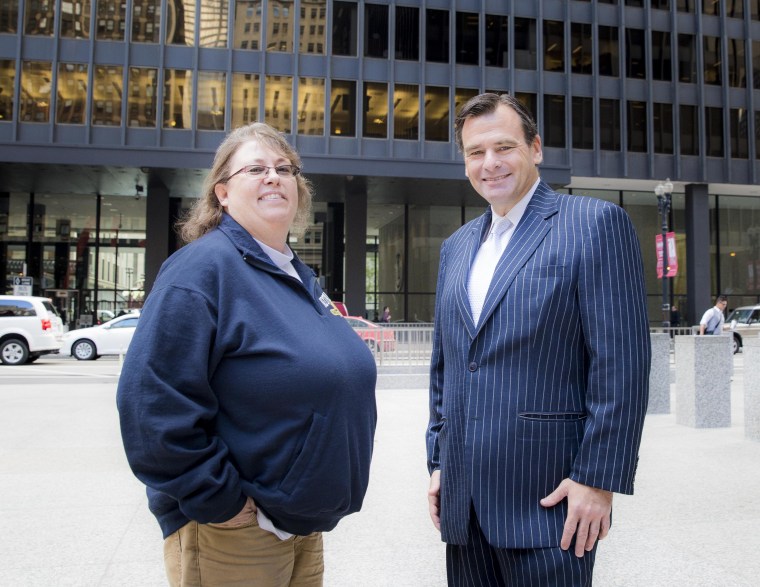The Seventh Circuit Court of Appeals in Chicago on Tuesday became the first federal appeals court to rule that long-standing civil rights laws prohibit workplace discrimination based on sexual orientation.
The historic ruling quickly drew praise from LGBTQ-rights advocates.
“The checks and balances set up in this country are working just as they should,” Selisse Berry, CEO of Out & Equal Workplace Advocates, said in a statement emailed to NBC News. “The courts ruled in line with what our country’s largest corporations have known for decades — that having a diverse and authentic workforce is not just the smart thing to do, it’s the right thing to do.”
But who exactly does this ruling impact, and where will the case go from here?
Transgender Workers Not Included
Tuesday’s decision in Kimberly Hively v. Ivy Tech Community College stated "discrimination on the basis of sexual orientation is a form of sex discrimination." However, the case did not address discrimination based on gender identity.
Yet while the ruling does not explicitly protect transgender workers from discrimination, Lambda Legal’s Gregory Nevins, the lawyer for the case’s plaintiff, said the “writing is on the wall” when it comes to protections for trans employees.
“Any lawyer who advises their employer-side client, they’re going to say ‘You darn well better not discriminate against a transgender employee,’” Nevins told NBC News.
“The seeds are there for someone to make it an easy win … This case greatly undermined [Ulane v. Eastern Airlines] and left it barely breathing,” he added, referring to a 1984 case where the Seventh Circuit Court of Appeals ruled that transgender discrimination is not sex discrimination under Title VII of the Civil Rights Act of 1964.
Ruling Only Applies to a Few States
Tuesday’s decision only applies in the Seventh Circuit, which covers Wisconsin, Illinois and Indiana. And since Wisconsin and Illinois are among the 22 states that already have state laws prohibiting discrimination based on sexual orientation, the case will have the biggest immediate impact in Indiana.
“Employers in Indiana … are not required by state law to treat LGBT employees equally,” JoLynn Markison, a partner at law firm Dorsey & Whitney, said in a statement emailed to NBC News. “Those employers should immediately update their policies and handbooks to explicitly prohibit discrimination based on sexual orientation.”
While the case may not have a direct impact outside the Seventh Circuit, Nevins said the implications down the road could be “massive.”
“This isn’t binding outside those three states, but it’s going to have a huge impact every time this situation comes up,” he said.
Next Step for LGBTQ Workplace Rights
Nevins told NBC Out the defendant in this case, Ivy Tech Community College of Indiana, said they are not going to ask the Supreme Court to review the Seventh Circuit’s decision. This means the case will likely go back to the district court.
This, however, doesn’t mean the issue won’t have it’s day in front of the High Court. There are other similar cases making their way through the system.
“Three-judge panels of the Second and Eleventh Circuits recently ruled that Title VII does not prohibit sexual orientation discrimination as per se sex discrimination –- in direct conflict with the Seventh Circuit’s ruling,” Adam Romero, a legal scholar at UCLA School of Law’s Williams Institute, told NBC News via email.
“Regardless of what happens further at the Second and Eleventh Circuits, I expect that the U.S. Supreme Court will be asked within the next year or so to take up this issue. And I think there’s a reasonably good chance that the Supreme Court will agree to decide the issue of whether Title VII prohibits sexual orientation discrimination, because the Courts of Appeals are irreconcilably conflicted.”

